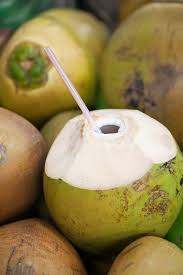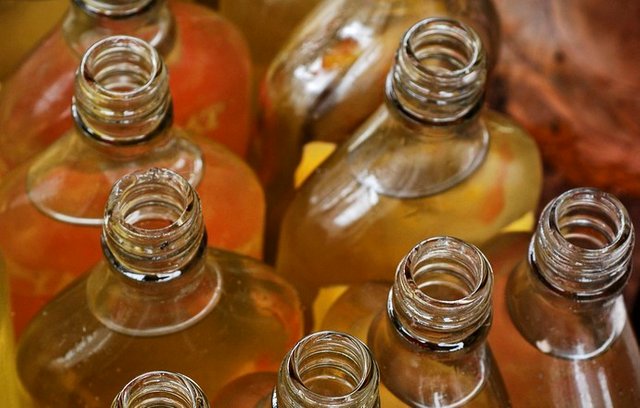Hi friends of !!!!! Steemit today I'm going to talk a little bit about venezuela? The big coconut? the venezuelan ¡¡¡¡¡¡¡¡
Water, oil, milk, flour ... know
The benefits of coconut for health

- Água de coco
Cada 100ml de água de coco tem:
Valor energético: 21,2kcal
Carboidratos: 5,3g
Lipídeos: 0g
Proteínas: 0g
Fibras: 0g
Cálcio: 19mg
Magnésio: 5mg
Manganês: 0,25mg
Fósforo: 4mg
Sódio: 2mg
Potássio: 162mg
Vitamina C: 2,4mg
Coconut has been gaining prominence in Brazilian culture due to the variety of products obtained: coconut water, coconut oil, fresh coconut, dry coconut, coconut milk, coconut sugar and coconut flour. Recent studies show numerous benefits in fruit consumption and its byproducts for health promotion, food variety and sports performance.
The coconut tree is native to Southeast Asia and predominantly tropical climate. There are basically two main groups: the giant coconut tree and the dwarf coconut tree. The dwarf coconut, mainly the green dwarf, is widely used in Brazil for the production of coconut water. In the giant coconut is used the solid part ("the pulp" - albumen) in the form of fresh / dry coconut, grated coconut, coconut milk, coconut flour and coconut oil. ?
Do you know which coconut has the most water?
In relation to the format: the more elongated the more pulp and the more round the larger the amount of water.
- Hydration: five reasons for you to ingest the ideal amount of water
- Coconut and coconut oil
From "villain to good guy", for years the coconut was removed from food programs for weight control. It is a food of high energetic density, but with numerous beneficial properties to health.
Coconut and coconut oil are important natural sources of saturated fats, especially lauric acid, medium chain fatty acid. Unlike other saturated fats, medium chain fatty acids are rapidly absorbed from the gut, transported through the portal vein to the liver, where they are quickly used as energy. They do not participate in the cholesterol cycle and are not stored in adipose tissue.
The coconut oil is cold extracted from the coconut pulp. Classified as saturated fat, but has a liquid consistency due to the predominance of 70 to 80% of its composition in medium chain fatty acids. The higher the degree of saturation, the harder it is the fat. However, coconut oil is an exception because it is mainly a source of lauric acid, a medium chain fatty acid, which can be preserved for long periods without the need for refrigeration. Non-enzymatic oxidation and higher temperatures than other fats.
Sources of fiber, sodium, calcium, magnesium, phosphorus, vitamin C, vitamin E, B vitamins and amino acids L-arginine.
Studies demonstrate benefits in the use of coconut pulp and coconut oil:
- anti-inflammatory action
- reduction in abdominal circumference
- increased immune response against some microorganisms such as viruses, bacteria and fungi
- source of vitamin C and vitamin E, having antioxidant action
- Olive oil or coconut oil? Both are beneficial, but moderation is needed.
The taste of coconut oil is very characteristic and sweet, however, recently the food industry produced oil without flavor so as not to alter the original taste of the food. It is more resistant to high temperature and can be indicated mainly in oven preparations such as roasts and cakes.
- Coconut: 100g contains 434.4 calories = 10.4g carbohydrates, 42g lipids and 3.7g proteins.
- Coconut oil: 1 tablespoon provides on average 13 grams of fat and 117 calories, has high caloric density.
- Coconut Milk
Prepared from the coconut pulp. It can be used instead of cow's milk for those who prefer ingestion of vegetable milks (eg vegans), lactose intolerant or allergic to milk protein.
- Here's how to prepare your own coconut milk:
- 1 dry coconut or 250g chopped
- 3 cups hot water tea
Beat in blender for 3 minutes, expect to stay warm and co in fine cloth or fine sieve.
Coconut flour
Obtained from hydration and then drying the pulp, it maintains the nutritional properties. High fiber content and low glycemic index. Much used in substitution of wheat flour mixed with other flours in preparations or added to fruits, vitamins and yogurts. Does not contain gluten and lactose.Coconut sugar: it is produced from the coconut palm blossoms. Free from the use of agrochemicals and chemical additives, 100% natural (not processed), has low glycemic index, is the source of several vitamins and minerals. Changes the taste of food a bit. It is considered a healthier type of sugar.